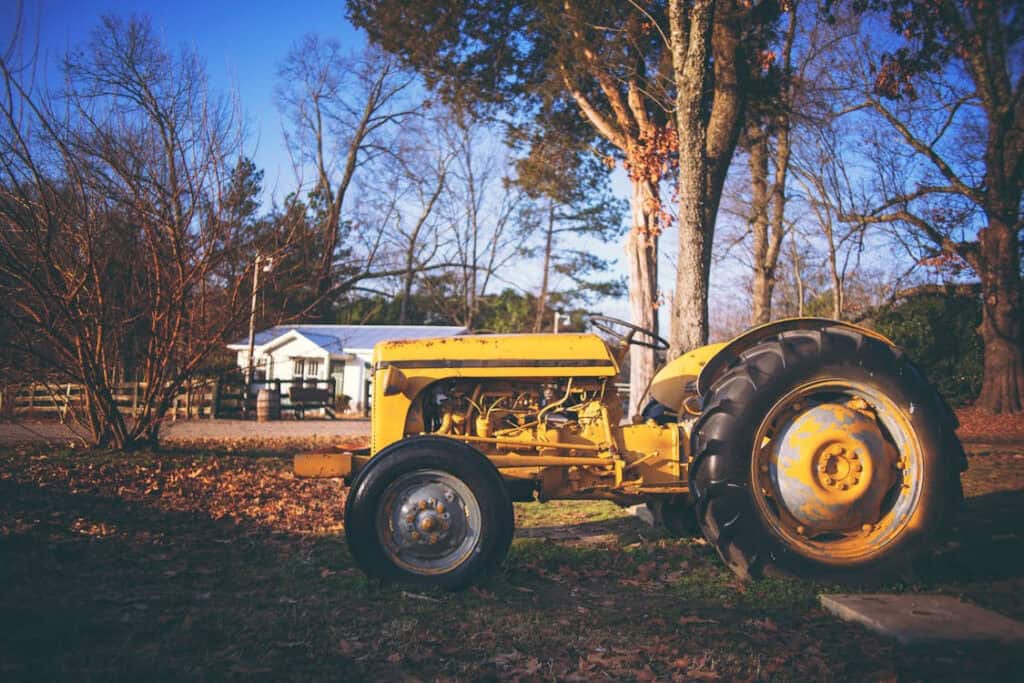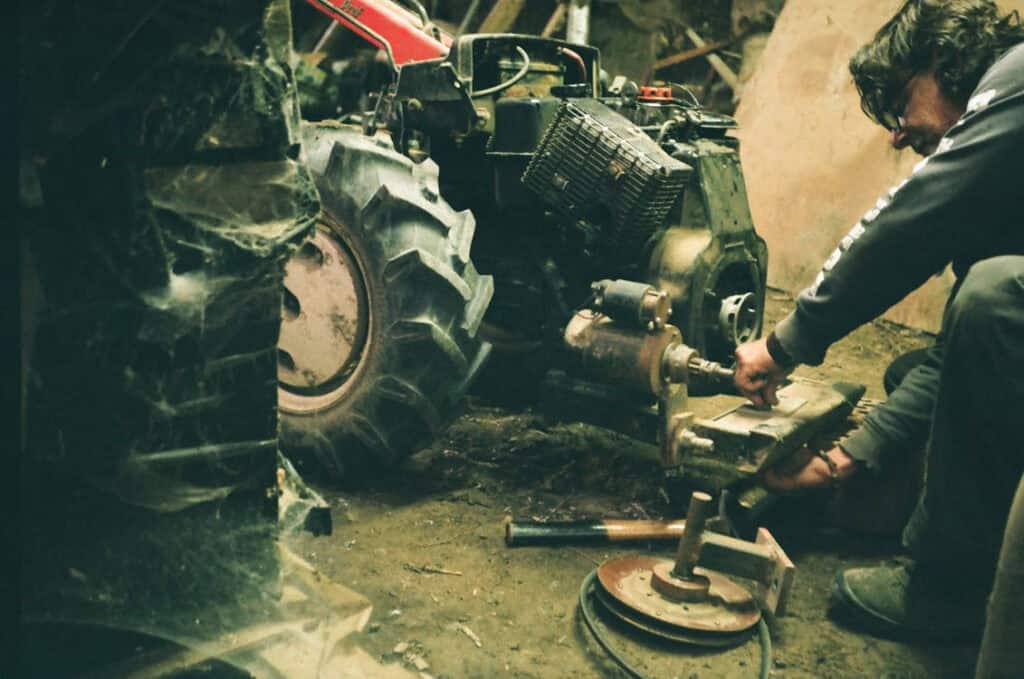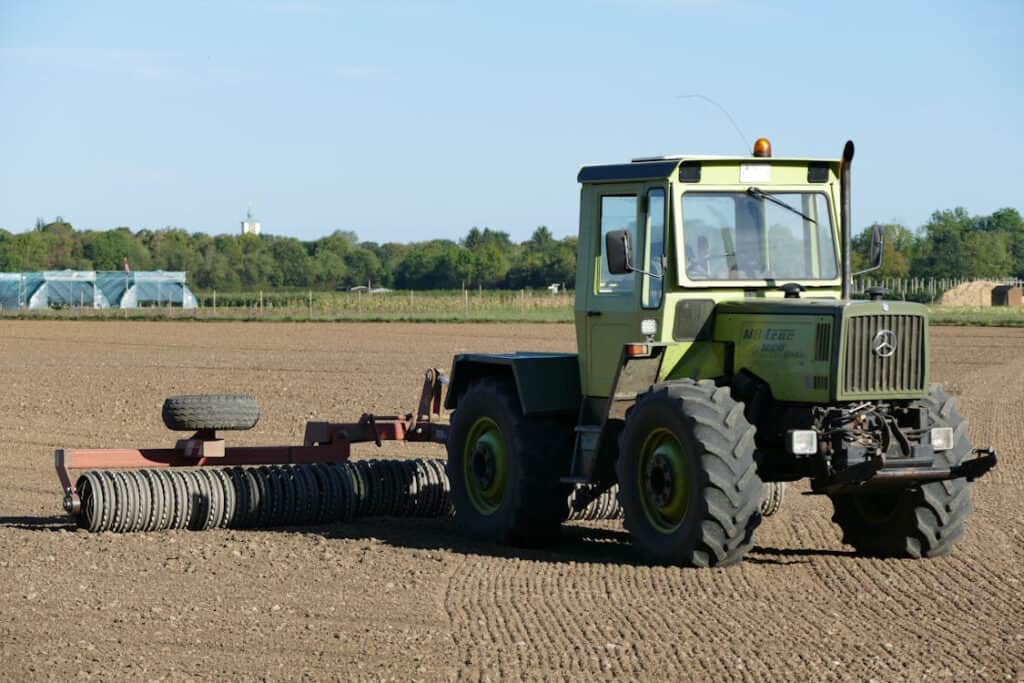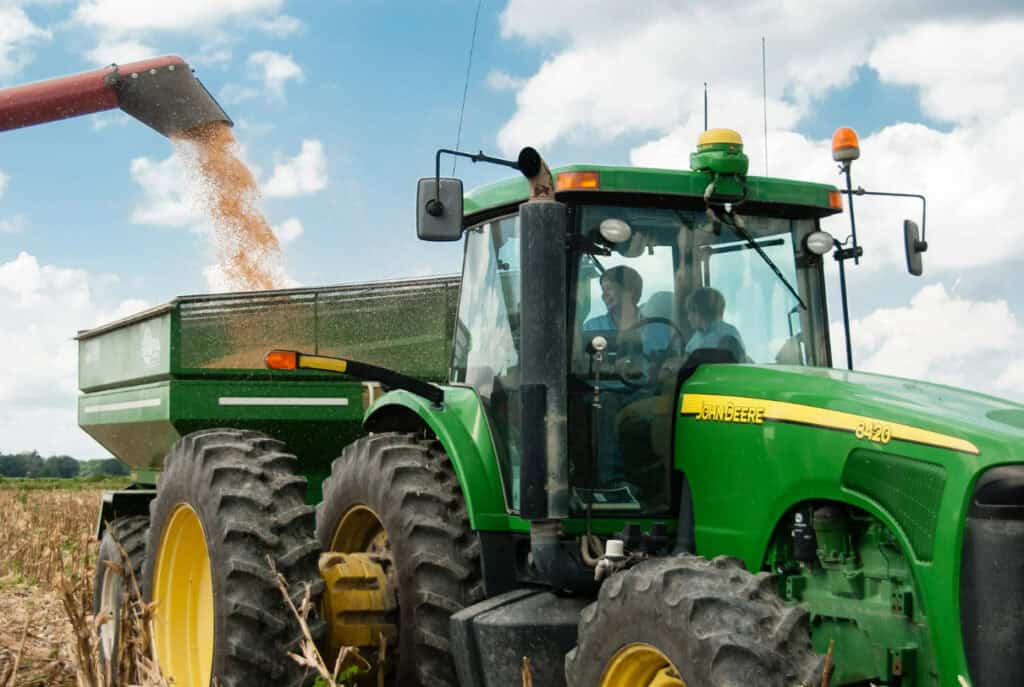If you’re running a farming business, then there can be no mistake: how you use your equipment is one of the most important aspects of your business’s prospects for success. You may already know this, but are you doing enough to take care of your equipment as a result?
Table of Contents
Here, we’re going to look over some of the farm business machinery or equipment maintenance essentials to ensure that you’re giving yours the care that it needs to keep your business cost-effective.

Keep Your Farm Business Machinery Clean
One of the simplest but most important ways to maintain farming machinery is to keep it clean. Dirt, dust, and debris are inevitable on a farm, but if left to accumulate, they can lead to a range of mechanical issues.
Soil and plant residues can clog air filters, coat electrical systems, and reduce the efficiency of radiators and cooling systems. Additionally, corrosive elements like chemicals, fertilizers, and pesticides may get trapped on the surface of your equipment, gradually eating away at metal parts.
Regular cleaning not only keeps your machines looking new but also helps you detect any hidden damage. Pressure washers, water hoses, and appropriate cleaning solutions can be used to clear away dirt and contaminants.

Be Proactive with Damage Inspection
Regularly inspecting your machinery for signs of wear and tear is a proactive approach to preventing breakdowns. Farm equipment endures tough conditions, so early detection of any damage can save you from expensive repairs and potential safety hazards. Inspections should include looking for loose bolts, leaks, cracked hoses, and worn-out belts.
Check all moving parts like wheels, gears, and chains to ensure they are functioning properly. For hydraulic systems, watch for any leaks or issues with pressure that could indicate problems with seals or hoses.
By being proactive, you can identify issues before they escalate. It is also beneficial to keep records of each inspection, noting down any repairs that are needed or have been made.
Ensure You Schedule Oil Changes
Oil is the lifeblood of your machinery’s engine, and neglecting oil changes can have severe consequences. Over time, oil degrades and becomes contaminated with dirt, dust, and metal particles, reducing its ability to lubricate engine components effectively.
This leads to increased friction, overheating, and ultimately engine damage. Scheduling regular oil changes is crucial to maintaining engine efficiency and longevity. Different types of machinery have different requirements for oil change intervals, so refer to the manufacturer’s guidelines for each piece of equipment.

Get the Right Lubricant for Moving Parts
While oil is essential for the engine, other moving parts on your farm machinery require specific lubricants to function efficiently. Gears, bearings, chains, and joints experience a high degree of friction and need proper lubrication to prevent wear and tear.
Using the right type of lubricant, whether it’s grease or oil, is crucial for protecting these parts. Not all lubricants are created equal, so it’s essential to choose the right one for the specific application.
Some machinery might require heavy-duty grease, while others may need light oil for optimal performance. The manufacturer’s manual will guide you on which lubricant to use for each component.
Check Your Battery Life
For machinery that relies on electrical systems, regularly checking battery life is crucial. A dead or weak battery can result in costly downtime and delays in your farming operations.
Modern machinery often has complex electrical systems that control everything from ignition to automation, so ensuring the battery is in good condition is key to uninterrupted functionality.
Routine maintenance should involve checking the battery terminals for corrosion, ensuring the battery is properly charged, and replacing it if necessary.
Avoid Getting Stuck in the Mud
In farming, dealing with muddy conditions is a common challenge, particularly during rainy seasons. Getting your machinery stuck in the mud can lead to delays, increased wear on the engine, and even permanent damage to parts like the transmission or wheels.
One way to prevent this is by choosing the right wheels and tires for your machinery. Agricultural tires with deep treads can provide better traction in muddy or soft ground. For areas prone to heavy rainfall or poor drainage, tracks instead of wheels might be a better option.
For certain equipment, specialist wheels might be necessary, like airless pivot tires for irrigation equipment. In addition to selecting the right tires, ensure they are properly inflated to the recommended pressure.

Keep an Eye on Your Trailer Hitches
Trailer hitches are often overlooked in maintenance routines, but they are critical for towing equipment and loads safely. If a hitch is worn or improperly attached, it can cause accidents, damage to the machine, or loss of the load being towed.
Make sure that all trailer hitches are in good condition and securely fastened before starting any job that requires towing. Regularly inspect the hitch for any cracks, rust, or other signs of wear. Ensure that the hitch pins and locking mechanisms are functioning properly.
Calibrate Your Detectors
Modern farming often incorporates technology to enhance productivity. Machines like harvesters, seed drills, and sprayers are fitted with detectors such as thermometers, scales, and metal detectors.
For these machines to work efficiently, the detectors need to be properly calibrated. Faulty readings can result in incorrect application rates, improper planting depths, or unsafe operating conditions. Regularly calibrating these sensors ensures that your machinery operates within optimal parameters.
Store Your Farm Business Machinery Safely
Proper storage of farm machinery is essential for preventing damage when the equipment is not in use. Leaving machines exposed to the elements can result in rust, corrosion, and degradation of components.
To avoid these issues, always store your equipment in a sheltered, dry area. If indoor storage isn’t possible, use tarps or covers to protect sensitive parts from rain, snow, or excessive sunlight. In addition to protecting your equipment from weather conditions, storing it in a secure location reduces the risk of theft or vandalism.
Before storing machinery for extended periods, it’s important to perform necessary maintenance like oil changes, battery checks, and lubrication to ensure it’s ready for the next season.
A failure to give your equipment the care that it needs is quickly going to get more expensive than you might be able to handle. If you have to invest in repairs and replacements, where maintenance would suffice, that can lead to major costs down the line.



